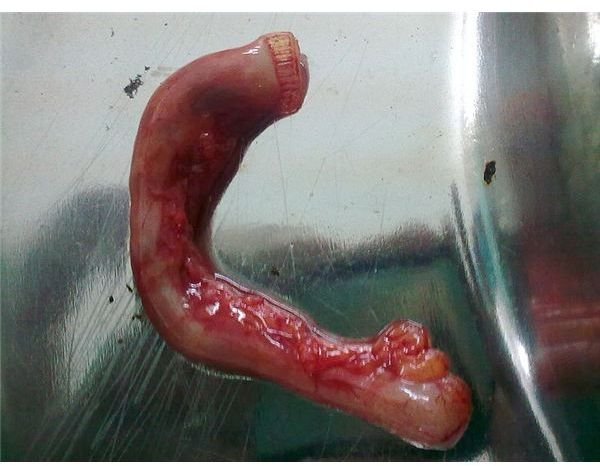Complications of Ruptured Appendix and Other Important Information
Appendicitis occurs when the appendix becomes filled with pus and is inflamed. The appendix is an organ in the abdomen on the lower right side. It projects out from the colon and is shaped like a finger. The appendix is not an essential organ and everyone can live without it. However, just because it is not essential does not mean it cannot cause serious problems. There are several symptoms associated with this condition, as well as complications, such as ruptured appendix. The complications of ruptured appendix can be very serious.
Who Experiences Appendicitis?
Anyone can experience this condition. However, it most often affects people who are between ten and thirty years of age. The cause of this condition isn’t always known. However, there are a few things that may cause appendicitis. If a hard piece of food waste or fecal matter obstructs the opening of the cavity (it runs the entire appendix’s length) this condition can occur. Certain infections, such as a gastrointestinal infection, can cause this condition, as can other types of inflammation. In both of these cases, appendicitis is caused by bacteria rapidly invading the appendix, resulting in it becoming filled with pus and becoming inflamed. If this condition is not treated promptly, a ruptured appendix can occur.
Symptoms of Appendicitis
Pain is often the most prominent symptom and it often comes on gradually and increases over a period of twelve to eighteen hours. The pain often starts off as an ache around the belly button area and then makes its way to the lower right abdominal area. When pressure is applied to the lower right abdominal area most patients will notice that this area is abnormally tender. When the lower right abdominal area is pressed on and then quickly released, the patient can experience a sharp pain in this area. When the patient is walking, coughing, or making other jarring movements the pain is often worsened.
Other symptoms of appendicitis include nausea, abdominal swelling, vomiting, diarrhea, loss of appetite, inability to pass gas, low-grade fever, and constipation.
Appendicitis Complications
The complications of appendicitis include a ruptured appendix, death, peritonitis, organ failure, and abscess. When the appendix ruptures, it tears or bursts. This complication can happen quickly if appendicitis is not diagnosed and treated. The complications of ruptured appendix an abdominal cavity infection, referred to as peritonitis, can occur due to infectious organisms and intestinal contents leaking into the abdominal cavity.
Treating Appendicitis
When this condition occurs it is most often treated through surgery. During this surgery the surgeon will make a two to four inch abdominal incision, or perform this surgery laparoscopically, and remove the appendix. If there is an abscess present, the surgeon may have to drain it, by placing a tube into the area through the skin, prior to performing the operation. Patients may also be given intravenous or oral antibiotics to help treat this condition.
Resources
eMedTV. (2006). Appendicitis Complications. Retrieved on April 7, 2010 from eMedTV: https://digestive-system.emedtv.com/appendicitis/appendicitis-complications.html
Mayo Clinic. (2009). Appendicitis. Retrieved on April 7, 2010 from the Mayo Clinic: https://www.mayoclinic.com/health/appendicitis/DS00274
Image Credits
Appendix: Nagaraju Raveender – Wikimedia Commons
